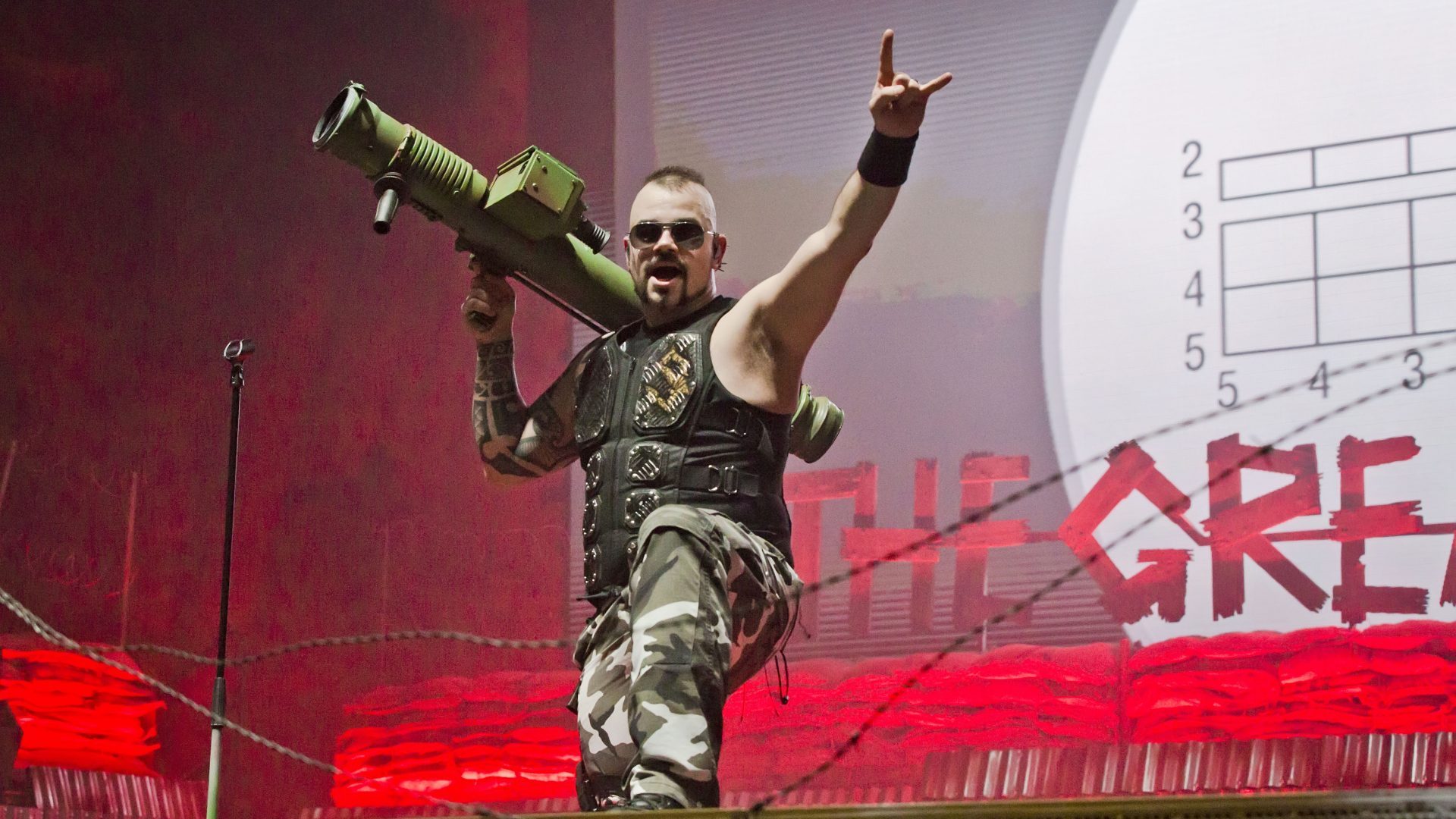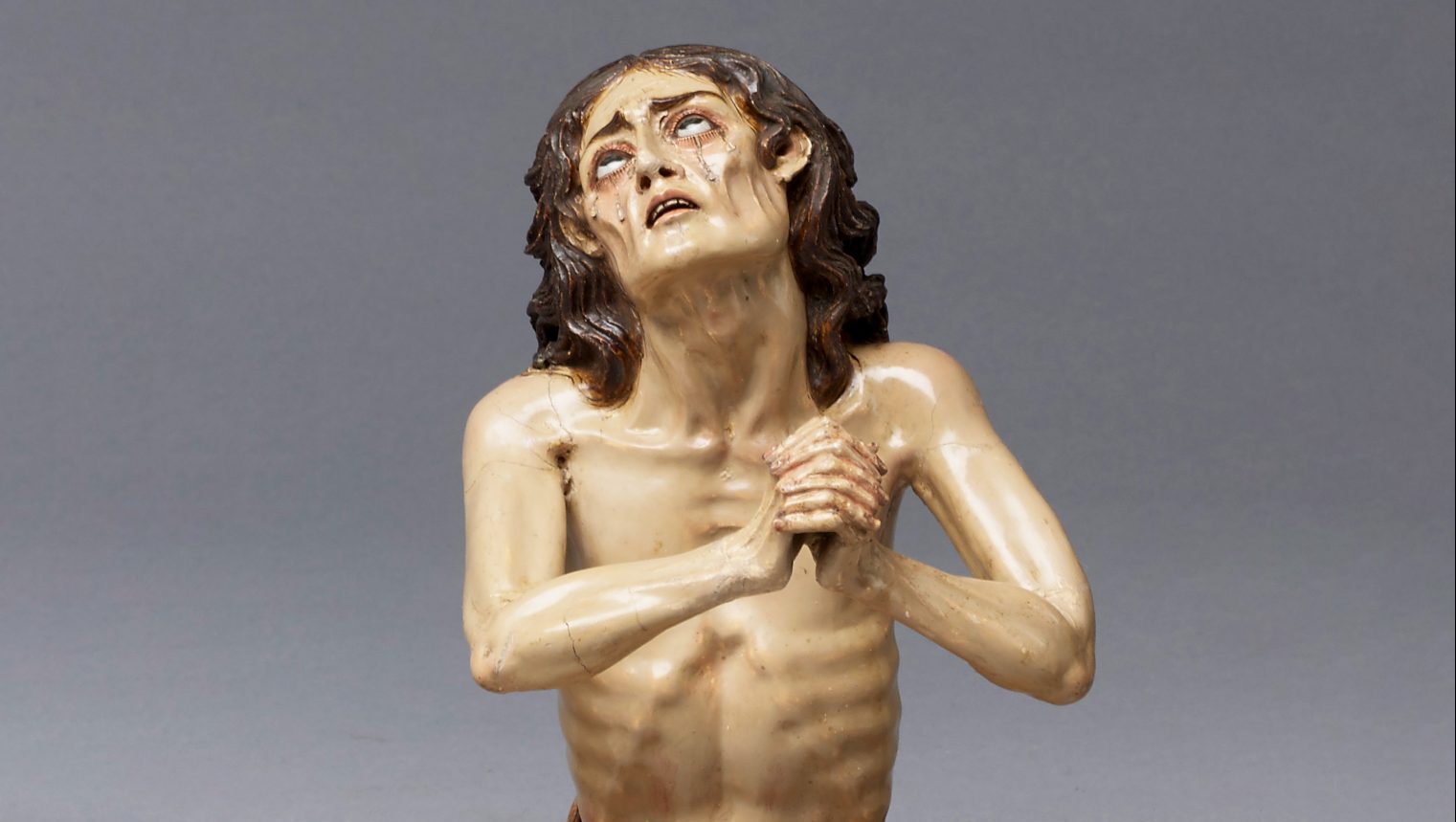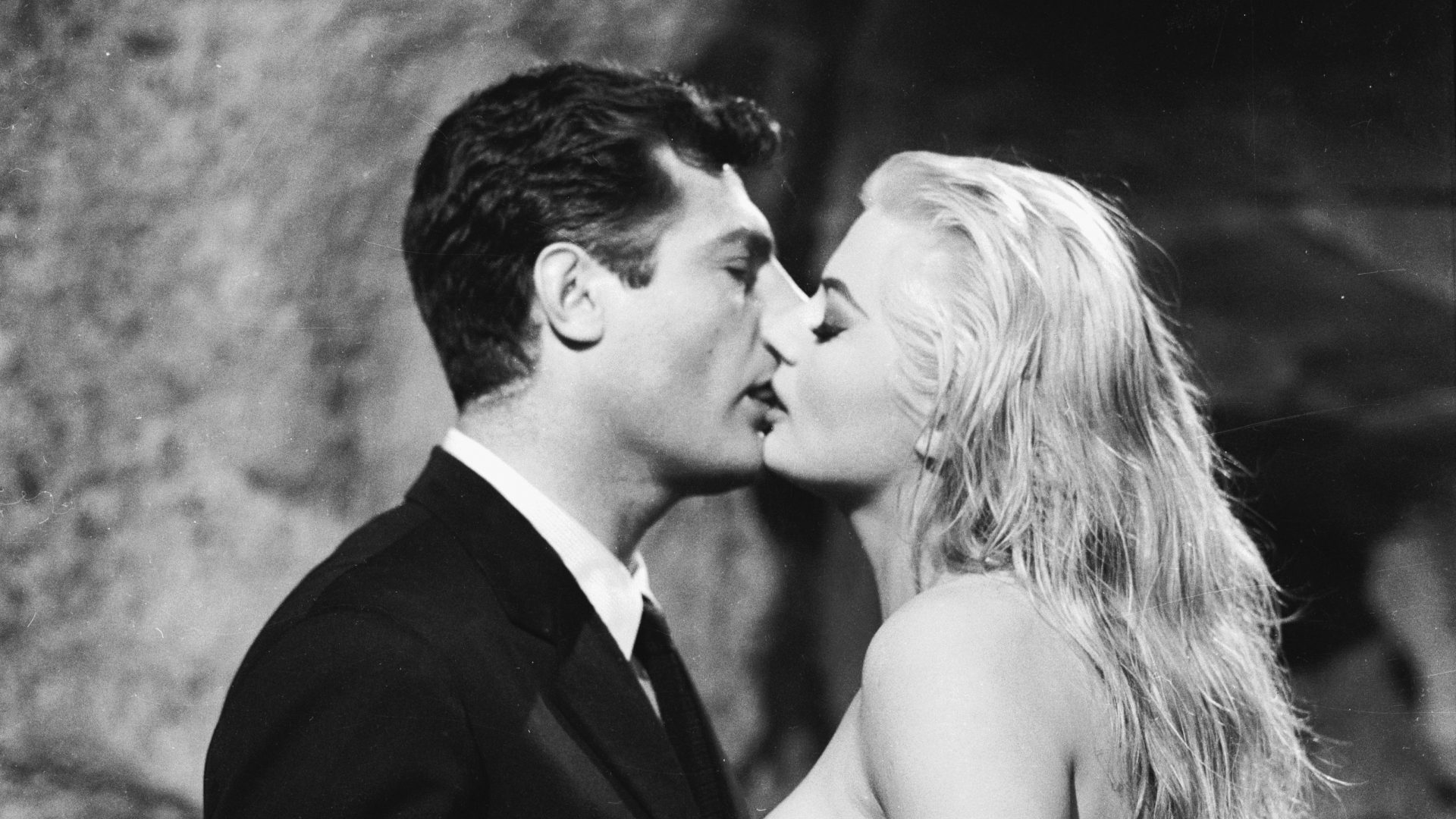When it comes to carving out a musical niche, Swedish power metallers Sabaton are hard to beat. Instead of writing lyrics about “drinking beer or dragons, or whatever”, as the band’s frontman Joakim Brodén has put it, almost every Sabaton song has taken an episode from military history as its theme.
But rather than just pillaging the history books for vivid tales of heroic deeds, great battles and tragic last stands, Sabaton have made education a mission. Their website meticulously details each of the real-life stories behind their songs, while their YouTube channel features mini documentaries where the band delve even deeper into these episodes from the past. Their most recent LP The War to End All Wars, which deals with WWI chronologically, from opener Sarajevo to closing track Versailles, was also released in an extended version with a commentary in a clipped British accent giving a history lesson beyond the already didactic lyrics.
Now Sabaton have been rewarded for their educational efforts. Last month
Vetenskap och Folkbildning (VoF) (The Society for Science and Folk Education – the Swedish sceptics association) named Sabaton “Folk Educator of the Year 2022”. VoF chairman Pontus Böckman commented: “In a world where we are flooded with fake news and conspiracy theories, fact-checked information is delivered from the last place many would have expected – a hard rock band.”
With four No 1 albums in their native Sweden, chart-topping LPs in Austria,
Germany, and Switzerland, and both their own music festival in their home
town of Falun and an annual cruise of the Baltic under their banner, Sabaton
can claim to be not just a band but a fully fledged phenomenon, and the award just confirmed yet another dimension to their already unique oeuvre.
But things have quickly turned sour. It soon emerged that, in the summer of
2015, Sabaton played at a lavish gala in Sevastopol, in annexed Crimea, staged by pro-Putin biker gang the Night Wolves. The band’s bassist and co-founder, Pär Sundström, had also commented of Crimea: “All these years they have felt like Russians but been treated like a small piece of Ukraine.” VoF announced a review of their award and the band were removed from a playlist created for the 2023 Swedish Presidency of the EU Council. It transpired that already, back in 2021, plans for the band to be involved in celebrations of the 500th anniversary of the Swedish Royal Guard were cancelled because of the Sevastopol gig.
Sabaton were sure to provoke controversy before long. While their lyrics have always emphasised the futility of war and been critical of the historical “bad guys”, the very notion of writing overblown metal songs about subjects like the Holocaust (see 2010’s The Final Solution – “Sent away on trains, sent on a one way trip to hell/ Enter the gates, Auschwitz awaits”) or the rise of the Third Reich (2006’s Rise of Evil) doesn’t sit entirely comfortably, particularly for a band whose stock-in-trade is clunky lyrics, lurid pulp novel-style cover art, and a more than faint dose of ridiculousness.
It also isn’t hard to see why the history-loving Swedes, with their unbridled,
military-obsessed masculinity, appealed to the Night Wolves. The aesthetic
adopted by the two groups is near indistinguishable, with the Night Wolves’ promotional video for the Sevastopol gala featuring grainy archive footage of the Soviet victory over the Nazis cut with scenes of bike stunts, pyrotechnics, and a T-34 tank loaned to the group by the Museum of the Battle of Stalingrad. Such unintentionally camp, Spinal Tap levels of pomp are Sabaton all over – this is, after all, the band who have a two-ton drum riser in
the form of a tank as the centrepiece of their barbed wire-strewn live show set.
Sundström has now clarified that he recognises that the invasion of Ukraine
was against international law, and the band have made statements against the war, including – somewhat bizarrely – at the reopening of the Heugh Battery Museum in Hartlepool in March last year after they fundraised for the historic site when it was threatened with closure. VoF have confirmed that, in light of these statements, they will not be retracting Sabaton’s award.
But in an interview the year after the Sevastopol gig, Brodén had doubled
down, breezily saying: “There’s always going to be some crazy guy somewhere!”, and adding, with considerable naivety, that as an apolitical band they couldn’t turn down the Night Wolves’ invitation as that itself would have been a political statement. Sabaton will keep their gong, but they may have lost any reputation for critical thinking.
Sabaton in five songs
Cliffs of Gallipoli (2008)
Typical of Sabaton’s accessible power metal sound, and their focus on episodes from military history, this was their first and only No 1 single in their native Sweden.
Carolus Rex (2012)
The title track of the concept album based on the rise and fall of the Swedish Empire, this song featured on the EU Presidency “Songs from Sweden” Spotify playlist, but was removed after the controversy over the VoF award exploded.
To Hell and Back (2014)
From Heroes, Sabaton’s first album to reach No 1 in Sweden, this typically
bombastic track celebrates Audie Murphy, one of the most decorated US
soldiers of the second world war.
The Last Stand (2016)
The title track of Sabaton’s eighth album, this song dealt with the Swiss Guards during the Sack of Rome by the troops of Holy Roman Emperor
Charles V (“In the service of heaven/ They’re protecting the holy line/ It was 1527”).
Father (2022)
From last year’s EP Weapons of the Modern Age, this track was inspired by “father of chemical warfare” Fritz Haber, and the use of gas as a weapon during the first world war.




